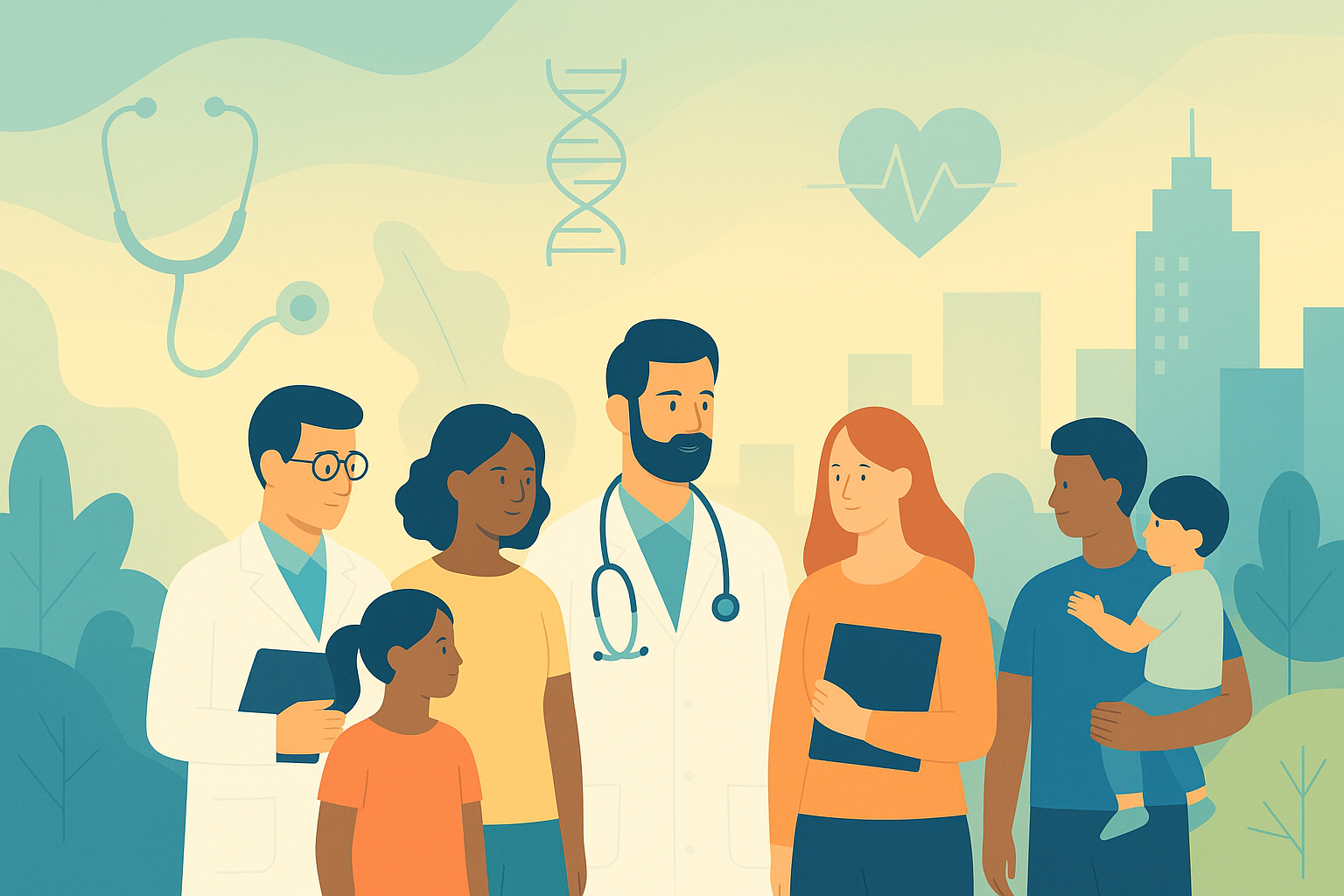
Personalized Trials: The Future of Tailored Healthcare
Imagine being able to know exactly what treatment works best for you. Not an average patient or a group in a clinical study, but you, as an individual. This vision is at the heart of the emerging field of personalized or “N-of-1” trials. Unlike traditional clinical trials that aim to find treatments that work for the majority, personalized trials focus on tailoring care to the unique needs of each patient. The potential for this kind of individualized approach could revolutionize healthcare by ensuring that treatments are more effective, safer, and ultimately lead to better health outcomes.
What Are Personalized Trials?
In a typical clinical trial, researchers recruit large numbers of patients, divide them into groups, and compare the average outcomes of each group. This design assumes that everyone responds similarly to treatment. While this approach has given us life-saving therapies, it falls short when individual patients react differently to the same treatment. Personalized trials—often called “N-of-1” trials—are different. Instead of focusing on the average response across many people, they aim to find out what works for each person, making them the ultimate tool for precision medicine.
In a personalized trial, a single patient is exposed to different treatments in a randomized order. Neither the patient nor the doctor knows which treatment is being given at a given time (a method known as “blinding”), and this prevents bias. By collecting detailed, systematic data—such as symptoms, side effects, or other health indicators—during each treatment phase, doctors can pinpoint the best course of action for that individual.
The outcome? A treatment plan that is fine-tuned to work for you, and not just someone like you.
Why Should Public Health Practitioners and Researchers Care?
The impact of personalized trials stretches far beyond individual care. For public health practitioners and researchers, these trials could provide new ways to tackle some of our biggest health challenges, including chronic diseases, mental health disorders, and even the management of side effects from medications.
Currently, the healthcare system operates under a “one-size-fits-all” model. Patients with the same diagnosis are often treated with the same medications, even though their bodies, lifestyles, and responses to treatment vary greatly. Personalized trials break free from this mold, offering a model where treatments are tailored to the specific needs of each patient. This can result in fewer side effects, better management of symptoms, and ultimately, a higher quality of life for patients.
For example, consider the problem of polypharmacy, where patients—particularly older adults—are prescribed multiple medications, often leading to harmful drug interactions. Personalized trials can help identify which medications are truly necessary, allowing clinicians to simplify treatment regimens safely. This is not only a win for patient safety but also a step toward more cost-effective healthcare.
The Science Behind Personalized Trials
One of the most exciting aspects of personalized trials is the role that data science plays in their design and execution. Traditional clinical trials rely on large datasets gathered from many participants. But in personalized trials, the data comes from one individual. Over time, as more personalized trials are conducted, data scientists can analyze the results across many trials to uncover broader trends and insights. This can lead to better predictive models, which help determine which treatments are likely to be most effective for future patients with similar characteristics.
Data science also enhances personalized trials by enabling real-time monitoring and feedback. Patients can track their symptoms through mobile health apps, wearable devices, or even simple daily surveys. This allows for a more granular understanding of how a treatment is working day by day, rather than waiting for the end of a multi-week or multi-month trial to see results.
Furthermore, with advances in machine learning and artificial intelligence, we are closer than ever to being able to predict the best treatment for each individual based on the wealth of personalized data collected in these trials. Imagine a future where your doctor could tell you with confidence that based on data from thousands of similar personalized trials, this treatment is the most likely to help you.
What’s in a Name? Rebranding Personalized Trials
Interestingly, the term “N-of-1 trial” may not be the best label for this exciting approach to care. Research shows that many patients and even some clinicians are confused by the name. Patients often feel it sounds impersonal, as if they are a number rather than an individual. Some even describe the term as off-putting, likening it to being treated like a “guinea pig.”
In response, experts in the field are advocating for a shift in how we talk about these trials. Instead of “N-of-1,” they suggest terms like “personalized trial,” “individual focus trial,” or “custom trial.” The hope is that a more consumer-friendly name will encourage greater participation in these trials, thereby expanding their reach and impact.
Regardless of the terminology, the core concept remains the same: personalized trials represent a promising future for healthcare, one where each individual receives treatment that is as unique as they are.
Practical Implications for Healthcare
The benefits of personalized trials are vast, and their implications extend into almost every corner of healthcare:
- Chronic Disease Management: Personalized trials are well-suited to conditions like diabetes, hypertension, and chronic pain, where treatment needs to be fine-tuned over time.
- Mental Health: These trials offer a new way to manage mental health disorders, where patients often respond very differently to medications.
- Medication Safety: By identifying which medications work best for an individual, personalized trials can reduce the risk of adverse reactions and help patients avoid unnecessary treatments.
- Health Behaviors: Personalized trials can even be used to test behavior-change strategies for weight loss, physical activity, or smoking cessation, allowing patients to see what works best for them.
Join the Conversation
What do you think about the idea of personalized trials? Could this approach change the way we manage chronic conditions, mental health, or medication side effects? Have you ever felt that the “one-size-fits-all” model of medicine didn’t work for you? Share your thoughts in the comments or on social media using the hashtag #PersonalizedTrials.
Be Part of the Change – Get Weekly Updates!
Stay informed and connected. Subscribe for free and share this blog to make a difference in public health with others. If you liked this blog, please share it! Your referrals help This Week in Public Health reach new readers.



